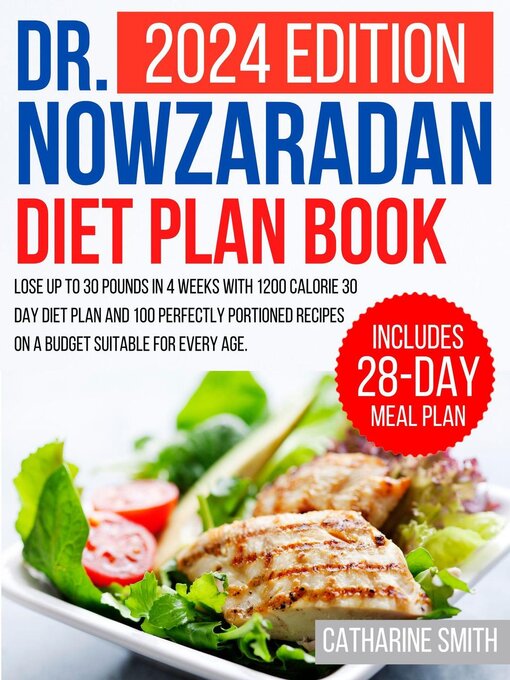Effective Ways to Adopt a Vegetarian Mediterranean Diet in 2025
The Vegetarian Mediterranean Diet is more than just a way of eating; it’s a vibrant lifestyle centered around wholesome ingredients, healthful fats, and the cultural richness of Mediterranean cuisine. In 2025, adopting this diet can not only enhance your physical health but also promote a sustainable and mindful approach to eating. The benefits of such a diet extend to chronic disease prevention and improved heart health through a balance of nutrient-dense meals and colorful plates filled with seasonal produce and high-fiber foods.
As you embark on this dietary journey, you'll discover the joys of incorporating vegetarian protein sources, fresh vegetables, and whole grains like quinoa, while enjoying the myriad flavors of Mediterranean herbs and spices. This article will guide you through essential tips for adopting a vegetarian Mediterranean diet, including meal prep ideas, cooking methods, and key recipes to try, such as the traditional Greek salad or hearty veggie wraps. Let's explore the steps you can take to integrate this delicious and healthful dietary pattern into your lifestyle.
Key Components of a Vegetarian Mediterranean Diet
Building a solid foundation is the first step toward successfully adopting a vegetarian Mediterranean diet. The focus on high-fiber foods, legumes, nuts, and seeds ensures adequate nutrition while keeping meals satisfying.
Understanding the Mediterranean Diet Structure
The Mediterranean diet is characterized by a variety of food groups, including fruits, vegetables, whole grains, legumes, nuts, and healthy fats. Olive oil stands out as a primary fat source, known for its many benefits as part of a healthy eating strategy. Incorporating antioxidant foods and non-dairy alternatives can also enhance this diet, allowing for plenty of flexibility within the vegetarian framework.
Choosing Healthy Fats and Oils
Healthy fats are key components, particularly those found in olive oil, nuts, and seeds. These fats not only taste great but also play essential roles in heart health, helping to lower cholesterol levels. When making cooking decisions, prioritize these healthful fats and consider using them in moderation to create balanced plates.
Incorporating Seasonal and Local Produce
Seasonal eating not only supports local farmers but also ensures that you consume the freshest ingredients available. This practice improves nutrient density and flavor in meals. Aim to create meals that showcase seasonal fruits and vegetables—a colorful plate is not only visually appealing but also nutrient-rich and satisfying.
Plant-Based Proteins and Legumes
Vegetarian protein sources play a crucial role in maintaining muscle mass and overall health. Incorporate legumes frequently into your meals, as they are rich in protein and fiber. Recipes featuring legumes, such as lentil soup or chickpea salads, can provide flavorful options that are filling and nutritious.
Exploring Vegetarian Mediterranean Recipes
Venturing into the world of vegetarian Mediterranean recipes opens doors to a diverse array of flavors. From classic Greek salads to hearty sauces for pasta, there's an abundance of meals that are both simple and satisfying. Explore variations of staple dishes by adding seasonal vegetables or trying different cooking methods, such as roasting or grilling to enhance taste.
Meal Planning for a Vegetarian Lifestyle
With the fundamentals of the vegetarian Mediterranean diet established, the next step is to focus on meal planning. A well-structured plan can help you remain intentional about your eating habits while simplifying the cooking process.
Creating a Balanced Vegetarian Meal Plan
Designing a meal plan requires understanding which meals can satisfy and nourish. Aim to include a variety of food groups at every meal—this ensures you cover your nutrient gaps and provides your body with the energy it needs. Use resources that outline vegetarian meal options specific to Mediterranean cuisine to inspire your planning.
Easy Recipes and Quick Vegetarian Meals
Busy schedules can make it challenging to stick to a healthy eating plan. Discovering easy recipes for quick vegetarian meals will help you maintain momentum. Dishes like veggie wraps and baked dishes can be prepared in under 30 minutes, combining convenience with nutritious ingredients that align with a Mediterranean diet.
Cooking Methods That Enhance Flavor
An array of cooking methods can bring meals to life; consider techniques such as roasting vegetables or grilling proteins to develop deeper flavors. These methods not only improve the taste but also emphasize the natural sweetness and nutritional benefits of your ingredients.
Mindful Eating and Portion Control
Mindful eating is an essential aspect of the Mediterranean lifestyle, encouraging individuals to be present during their meals. By practicing portion control and being aware of your hunger cues, you can better manage your food intake, ultimately leading to healthful lifestyle changes.
Bringing Mindfulness into Your Diet
Transitioning to a vegetarian Mediterranean diet encourages mindfulness and intentional consumption. This approach fosters a healthier relationship with food based on enjoyment, nutrition, and self-awareness.
Exploring Mindful Consumption
Mindful consumption involves understanding your food relationships and exploring the connections between what you eat and how you feel. Whether through savoring flavors or reflecting on the experience of sharing meals, mindful practices enrich your dining experience.
Optimizing Meal Times and Food Environments
Creating a positive food environment can lead to more enriching eatings experiences. Set aside specific times for meals that allow you to enjoy food without distractions. A serene setting encourages slowed-down meals, making it easier to appreciate flavors and improve digestion.
Community Health Resources and Support
Getting support from community resources can enhance your journey. Look for local cooking classes centered around plant-based Mediterranean cuisines or group meetups that focus on sharing vegetarian meal ideas, fostering both knowledge and connection with others striving for similar dietary goals.
Xand Looking Ahead: Sustainable Eating
The vegetarian Mediterranean diet not only supports individual health but also promotes sustainability in food systems. As you become more experienced with this dietary pattern, you'll discover various strategies that align with eco-friendly practices.
Understanding Food Sustainability
Sustainable eating emphasizes making choices that benefit the planet while nourishing your body. This may include selecting seasonal and local ingredients whenever possible and minimizing food waste through smart planning and cooking techniques.
Incorporating High-Antioxidant Foods
Foods rich in antioxidants are crucial in combating inflammation and oxidative stress, both linked to chronic diseases. Focus on foods like colorful vegetables and fruits to support your immune system while enjoying delicious meals.
Maintaining a Balanced Nutrition Approach
Stay attuned to your dietary needs as you adapt to this lifestyle. Focus on incorporating a mix of high-fiber foods, healthy fats, and protein sources in balanced proportions to create satisfying meals that cater to your personal preferences and nutritional needs.
Q&A Section
What are the primary benefits of a vegetarian Mediterranean diet?
The vegetarian Mediterranean diet helps reduce the risk of chronic diseases due to its focus on high-fiber foods, healthy fats, and nutrient-dense meals. It promotes heart health while providing a diverse range of flavors and meals.
How can I get started with meal prep for a vegetarian Mediterranean diet?
Start by planning your meals for the week and prepping ingredients in advance, such as chopping vegetables or cooking grains. This saves time and ensures you have healthy options readily available.
What vegetarian protein sources are best to include?
Incorporate a variety of protein sources such as legumes, quinoa, nuts, seeds, and non-dairy alternatives. These options provide a rich source of protein while complementing the Mediterranean diet.
How can I enjoy Mediterranean cuisine while dining out?
When dining out, opt for Mediterranean-themed dishes that include plenty of vegetables, legumes, and whole grains. Look for salads like Greek salad or veggie-based entrees that emphasize healthy cooking methods.
Where can I find resources to help with vegetarian Mediterranean cooking?
Utilize online resources, local cooking classes, and community groups focused on vegetarian cooking and Mediterranean dishes. These platforms often offer valuable tips, recipes, and support.

 ```
``` 